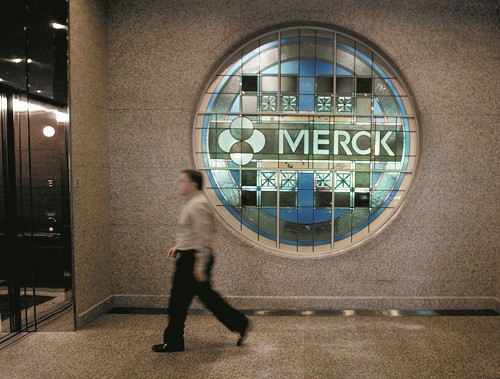
MSD gives up on cholesterol drug, despite positive results
pharmafile | October 12, 2017 | News story | Medical Communications, Sales and Marketing | MSD, Merck, biotech, cholesterol, drugs, pharma, pharmaceutical
MSD, known as Merck in North America, has revealed that it will not pursue a regulatory filing for its cholesterol drug, anacetrapib. The move means that it becomes the latest CETP inhibitor to hit the wall, after previous work in the area by Roche, Pfizer and Eli Lilly also failed to show promise.
MSD’s product did go one step further than its rivals by managing to show that its drug did show benefit in reducing the number of major coronary events compared to placebo in patients at risk.
The initial press release announcing the success in its 30,000 patient trial left many in the industry surprised, after the numerous failures preceding this type of treatment.
However, once full data was revealed in August, many began to see the incremental positive reduction in events of 10.8% against 11.8% in the placebo arm as one that MSD would not see as worth pursuing.
Alongside this data, the drug missed a secondary objective of reducing a composite outcome of atherosclerotic events. All in all, it meant that the drug would probably struggle to find a market, despite having some beneficial outcomes for patients.
“We are deeply grateful to the researchers and patients who participated in the anacetrapib clinical development program, and in particular the REVEAL outcomes study. Unfortunately, after comprehensive evaluation, we have concluded that the clinical profile for anacetrapib does not support regulatory filings,” said Roger M. Perlmutter, President, Merck Research Laboratories. “During the past half-century, Merck has made numerous, important contributions to the treatment of cardiovascular disease. Our work in cardiovascular research continues.”
For MSD, it will be a disappointment to have to let the drug go, especially after the amount of money needed to conduct a 30,000 person trial had already been committed to the project, with estimates suggesting it cost more than $500 million to conduct.
The company ruled that it would not have been able to recoup this money when there are statin drugs available on the market doing a similar job with fewer concerns over safety.
Ben Hargreaves
Related Content

Arkin Capital closes $100m fund for pre-clinical and early clinical-stage biotech
Arkin Capital has announced the closing of Arkin Bio Ventures III, a $100m fund designed …

Cellbyte raises $2.75m to fund pharma drug launch platform
Cellbyte has announced that it has raised $2.75m in seed funding for the streamlining of …

Lilly opens fourth US Gateway Labs site
Eli Lilly has opened its newest Lilly Gateway Labs (LGL) site in San Diego, California, …





